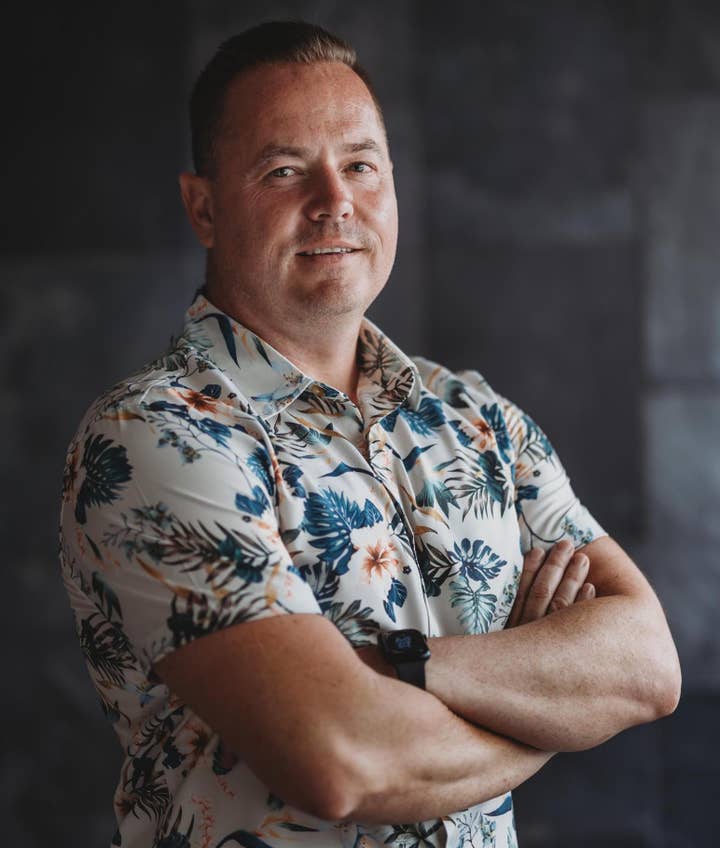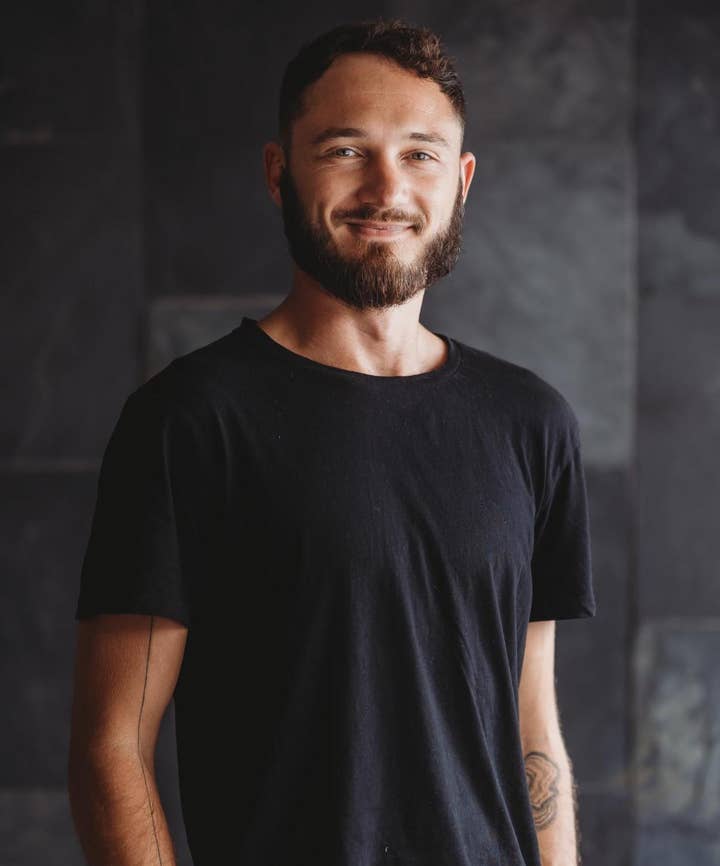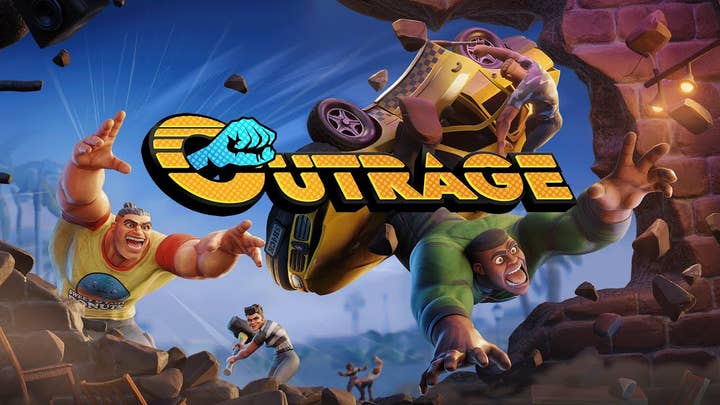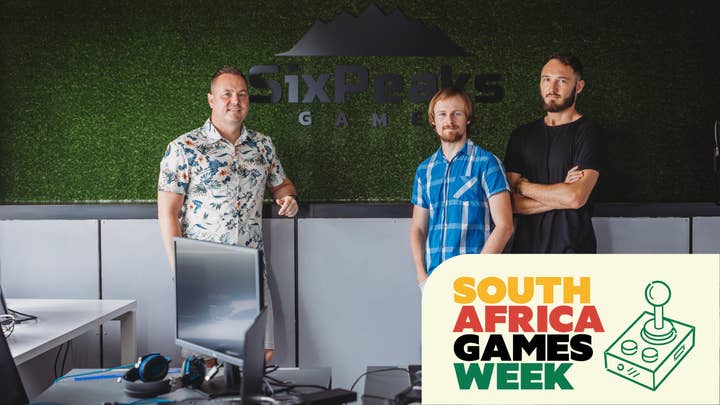Unlocking South Africa's talent through co-development
Six Peaks' Jason Ried and Luan Joubert talk about bringing big budget game development to South Africa and "resilient, independent community building"
You can read all our South Africa Games Week articles on this page.
The South African games industry has a long history of work-for-hire firms supporting some of the biggest developers worldwide, with several studios specialising successfully in porting and co-development. Six Peaks Games is one of them and, while technically a newcomer, it has decades of experience under its belt.
It was founded in 2022 by Jason Ried – a games industry veteran who started in games in 2003 and spent the first eight years of his career in QA and production roles across Eidos and Disney Interactive Studios, in the UK where he lived for ten years. In 2011, he founded Fuzzy Logic, a mobile games studio that eventually became specialised in AR and VR across various sectors.
Still managing director at Fuzzy Logic, Ried is now also CEO of Six Peaks Games, and was keen to stay in South Africa for his next adventure after settling back in the country a few years back.
"[Fuzzy Logic] became very boring; I mean that in a nice way," he smiles. "It was successful, but we were doing training for mining companies and automotive. That company, ironically, had moved to the UK. So, we've still got it, and I'm a director in it, but it's not something I was quite happy working in every day.
"And so over a year ago, a few of the core team left, and we started Six Peaks to go back into games. We're doing co-development, porting, QA, and we're actually working with colleagues that I used to work with at Disney."
He mentions industry veteran Jason Avent (former Boss Alien founder) and his new studio, Hardball Games, which launched last year in Brighton, UK.
"We're their co-dev partner, and the whole idea is we're just integrated with them," Ried continues. "We're working on [OutRage] long-term, we're doing development out in South Africa alongside them. We're doing some art, and we're building a very big QA studio for them, and for other devs that we're working with."
Six Peaks is embedded in Hardball's team and, on the flip side for the Brighton studio, they "get great talent who speak English and are in a convenient time zone, but at a slightly lower rate," Ried says.
"There are so many South Africans that want to work on big budget games... When I was in the UK, there were so many, but they don't get the opportunity. And so they want to come home for family reasons, and this is a way we see of giving them that exposure to AA and AAA without having to live over there."

Six Peaks is also hoping to work with additional clients as the company grows. It currently employs 12 people, with Ried estimating that seven or eight people could be hired throughout the upcoming months, with the hope to reach 30 staff by the end of the year.
While it's working primarily with Hardball for the time being, the company is in talks to have a publisher partner coming on board, which could help scale Six Peaks pretty quickly, Ried adds.
The ambition with Six Peaks is really to "get exposure to bigger games, and games that are more publicly known," Ried explains, saying that's why the studio is currently prioritising co-development and not its own IP.
Six Peaks' QA manager Luan Joubert adds that working with a smaller number of clients in a more dedicated manner is a welcome change from Fuzzy Logic.
"Because we did a lot of client work, one of the biggest challenges with Fuzzy Logic was that it was a lot of really fast turnaround," he says. "We had a lot of pressure, and a lot of projects going on at the same time that we had to get out. Something that we brought in with Six Peaks is longer-term projects and more dedicated focus on those, instead of spreading everyone thin."
Other well known co-development and porting powerhouses in South Africa include 24 Bit Games (recently acquired by Annapurna, stay tuned for our interview with the studio to be published tomorrow), but Ried points to the "very wide mix of companies" in the South African games industry. He mentions Free Lives (which you can also read about on Friday), that he describes as an "incredible IP machine"
"There are a load of us who have been in this industry for a really long time in South Africa – it's nice to see how these different companies have grown into their own niche. And I'm including Fuzzy Logic in this, because we were pretty big as well and we were a mobile studio, so we were all very different.

"Some of the challenges we all faced were getting people to trust that South Africa's good. There's this perception that South Africa's very far away, which means that the time zones are out of whack [with Europe]. We're like, 'No, it's like one hour in summer, and two hours otherwise.' So, that was a thing.
"But getting budgets would have been a problem. When people don't know you, they're not going to trust your territory, so it was really hard for us to develop IP. We worked on some really big-budget games with Hasbro, we worked with Microsoft Seattle, with Square Enix, but that was really hard fought. We had to go out to a lot of conferences and spend a lot of money trying to get this work in. It's not like, I don't know, Brighton, where you know there are great studios, so you can just trust that they're great."
Alongside this, Ried mentions that the South African government also "gets in the way of things and makes it a little bit harder, logistics-wise," but that devs have learnt to work around it.
He mentions the challenge of getting dev kits in the country, something that was widely shared with us by every South African dev we talked to, adding that "the government is a pain getting things in."
But he's also keen to mention the strengths of South Africa, in particular how good the country's universities are. There's a wealth of talented computer science engineers in the country, for instance. Ried explains that unlike in other places like the UK where they would go for industries like banking to make money and then would be unemployable in games cause their salaries expectations would be too high, in South Africa they do want to work in games.
"So we've got a really big opportunity with developers, engineers, and artists as well. The film industry in Cape Town is really big, lots of Hollywood movies are filmed in town, the VFX is done here, so we've got talented artists all over the place. I would say we have fewer game designers, but that's just a tradition that you build up over many years. Anyone can be a game designer, but great game designers have learned their craft over many years. And so, the more games you make, the better they are at that. So, I think that's where the one little hole is in the industry.
"And then, I think the one negative [is] there's too much focus on trying to make games for local people. I lived overseas, and I see that it's not about just one territory. It's not about making games for Brighton, it's about making games for the world market. And you can have a theme, and I can keep going back to Black Panther on this. Black Panther was a global movie made for an American audience with an African theme, and it was incredible because of that."

This is a topic that has regularly come up in our interview with South African developers, for instance also mentioned by Nyamakop CEO Ben Myres in the interview we published today.
Joubert concurs: "You can still have an African games company and still make money from across the world. It doesn't have to be that your company has to be African and only focus on Africa, and trying to make money off an African audience. You can help develop the environment."
For this ecosystem to develop, Ried goes back to the discussion about the South African government, and says devs shouldn't expect it to help move things in the right direction because "nothing is going to change" on that front.
"People make things happen. Maybe you don't get the support from the government. That's fine. That's not going to stop you"
"The government is inept, and so we should work around them. And we don't need them. They're not going to give us money to make games because they don't understand it. So, the things that they hinder us in is customs, getting things in, so fine, we find a way around that. Electricity supply? We find a way around that. Our studio runs off inverters and batteries. So, instead of worrying about these things or moaning about them, just let's find ways around them.
"Now, I totally get if you don't have the money to do this, that is impossible, and that is the bigger problem, and I think that's why we think the government will solve the problem, but I don't think that's [their] role. We need to find a way to make an ecosystem that lets us get around these problems, and control them, because you can."
Joubert adds: "You've got a really resilient, independent community building. That's how we, in South Africa, like to see this. There will always be a way around [things]. And I think I like that outlook. People make things happen. Maybe you don't get the support from the government. That's fine. That's not going to stop you."
And Ried concludes: "What did well is there were a few successful companies who then sold, and then they reinvested that money through other companies. They all care about South African developers. I can see that happening over the next five years, and that's cool."
Sign up for the GI Daily here to get the biggest news straight to your inbox









